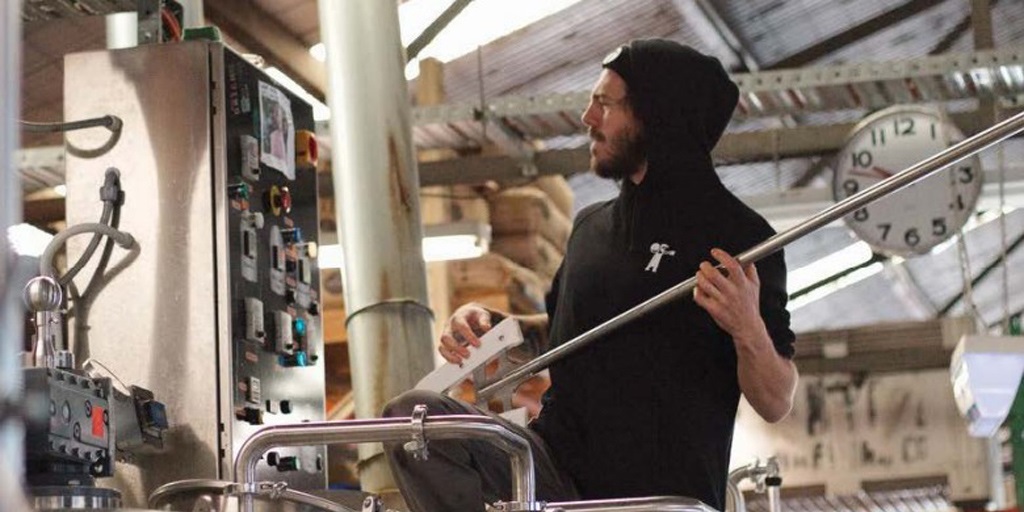
NSW launches indie brewers ‘action plan’

The NSW Government has launched an Independent Brewers Action Plan design to support the State’s craft breweries “to succeed domestically as well as crack international markets”.
The action plan, similar to Queensland’s Craft Beer Strategy, was launched in collaboration with the Independent Brewers Association at the Beers to the Bush Festival in Dubbo on Saturday (29th February).
At the event, Deputy Premier and Minister for Regional NSW, Industry and Trade John Barilaro said that the state government was aware that the brewing industry was an area of growth and opportunity for the state.
“During a time of unprecedented drought it is amazing to see an industry growing that is able to provide a stimulus to regional economies as well as showcase the innovative and high quality products regional NSW is famous for,” Barilaro said in a statement to the media.
”Independent brewers produce a premium product and we need to support them to succeed domestically as well as crack international markets – that’s where the Action Plan comes in – to facilitate food, wine and ale trail experiences as well as export ready tourism experiences.
“We want to give our independent brewers the chance to expand and make their business dreams an ice-cold, refreshing reality,” he said.
Chairman of the Independent Brewers Association Peter Philip underscored the support of the NSW Government for indie brewers.
“This plan provides real actionable steps to help the industry grow which will create jobs, many of which are in small towns all over NSW,” Philip said in a media release.
What does the action plan say?
The Independent Brewers Action Plan is part of the wider-ranging NSW Food and Beverage Manufacturing Industry Development Strategy which was released by the NSW Government in 2019.
The plan appears to be a similar initiative to the Queensland strategy, but does not include any new infrastructure, and is a statement of intent largely aimed at providing access to existing grants and services run by the NSW government.
It will be looking at skills shortages in the brewing industry and how to mitigate them with the help of the IBA, as well as producing a research paper with the NSW Treasury analysing the economic impact of the sector in NSW as proof of concept to enable the NSW government to “target its industry development activities” and help focus its “future development efforts”.
Other measures include:
- “Connecting the industry to networks” – including tourism, research, education and training institutions
- Developing “skills pathways” to brewing, particularly in regional and rural NSW
- “Maximising the opportunities” for breweries to develop “market and export-ready tourism experiences
- “Supporting the development of technical capabilities and business acumen to ensure the industry’s continued growth”
- Providing information and help to enable brewers to access the existing NSW Regional Skills Relocation Grant, Regional Business Event Development Fund and Manufacturing Efficiency Funding, amongst others.
The plan suggests that IBA representatives are invited to Liquor Accord Governance Committee Meetings and announced the creation of a standing NSW Independent Brewing Industry Development Working Group which will include representatives from the Treasury, Liquor & Gaming NSW, and a number of other departments “to guide the development of the independent brewing sector”.
There was also a focus on export and new business startup help, again helping brewers access existing schemes.
There is no mention of aiding with planning and zoning issues that have made it challenging for breweries such as Bucketty’s to set up in rural environments.
Microbrewery licences implemented state-wide last year, will be suported through information and encouragement for participation in ‘pop-up liquor’ licensing trials in eligible trial areas, as well as ensure the industry worked with NSW Liquor & Gaming to review liquor regulations through special licensing trials to “identify a state-wide licensing approach suited to micro and independent breweries”.
State governments and craft beer
Announcing the plan, Minister John Barilaro said that the industry of 165 NSW breweries employs over 3,300 people, and two thirds of it is located in rural and regional areas.
He said that number will grow to over 6,000 in the next five years “with help from the Action Plan”.
“Independent beer is a big contributor to the NSW economy and the social fabric of NSW, particularly in small towns across the regions,” Barilaro said.
TheQueensland Craft Beer Strategywas wider ranging in scope, but brewers have found that the government’s willingness to engage with the industry has led to progress being made in a number of areas,such as craft beer licences.
While the NSW action plan may be lacking in certain areas, it serves as an affirmation of growing government awareness of the importance and impact of craft beer, marking another state government’s recognition of the growth and potential of the industry in terms of jobs and its economic contribution.
At the same time it also highlighted the need for governmental support to ensure the sector’s growth domestically as well as abroad.



